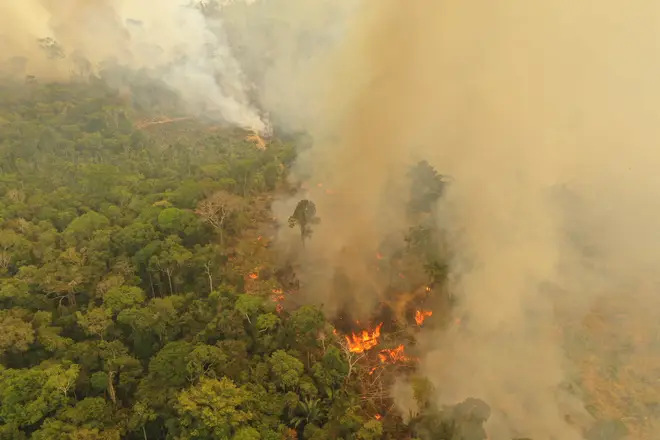
Dean Dunham 9pm - 10pm
17 June 2020, 06:48

Post-Brexit trade deals which do not protect nature and support sustainable farming could make the UK "complicit" in creating perfect conditions for another pandemic to emerge.
Increasing demand across the globe for food and natural resources are pushing human and wild animals closer than ever before, creating a “perfect storm” for the next pandemic.
The wildlife trade and intensive farming are helping to drive the “alarming” growth rate of zoonotic diseases, the World Wildlife Fund has warned amid the coronavirus pandemic.
The organisation warned three to four of the diseases, which can be traced back to viruses that jump from animals to people are being found every year.
Around 75 per cent of new human diseases over the past decade have originated in animals, including HIV, Sars and Ebola.
The WWF warned as mankind encroaches more into animal habitats and once wild areas the risk increases dramatically.
The organisation warned that the UK risked becoming complicit in future pandemics if post-Brexit trade deals do not protect nature and support sustainable farming.
“We cannot be complicit in increasing the risk of the next pandemic. We need strong legislation and trade deals that stop us importing food that is the result of rampant deforestation or whose production ignores poor welfare and environmental standards in producer countries,” Tanya Steele, chief executive at WWF-UK said.
“The Government has a golden opportunity to make transformative, world-leading change happen and ensure a green and just recovery. We need to work at every level with nature, not against it, to prevent another global health crisis.”

Vegan Activist Films Himself While Stealing A Pig From Leicestershire Farm
In the UK, concerns have been raised that post-Brexit trade deals could allow the import of food produced with lower welfare or environmental standards than allowed here, and undercut British farmers.
WWF said UK efforts to strike new agreements with countries risked not only driving down food and environmental standards of imported products but also being complicit in future pandemics unless the trade deals help reverse habitat destruction and ensure a move to sustainable farming globally.
The charity is calling on International Trade Secretary Liz Truss and Environment Secretary George Eustice to enshrine in law requirements that imports to the UK meet the highest standards, including efforts to make sure products and supply chains are not driving habitat destruction overseas.

More Beijing markets closed for fear of second wave of Covid-19
In the new report, Covid-19: Urgent Call to Protect People and Nature, the WWF says the large-scale conversion of land from forests and savanna to agriculture is being caused by unsustainable demand for food, in particular, to meet the increased demand for meat and dairy.
This encroachment is putting pressure on natural resources and bringing people, livestock and wildlife closer together, pushing up the chance of diseases moving from wild animals to humans.
The illegal trade in wildlife, low food standards and intensive livestock farming can also facilitate outbreaks and rapid spread of diseases.
The modern globalised world means an increasing probability new diseases can become devastating pandemics such as Covid-19, with serious impacts on health, livelihoods, the economy and food security, the report said.